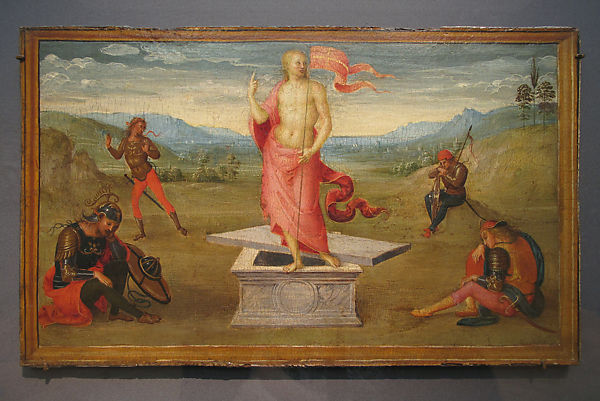Ad
Officium lectionis: Evaristus antverpensis 1968
Te,
pater Ioseph, ópifex colénde,
Názaræ
felix látitans in umbra,
vócibus
lætis humilíque cuncti
corde canámus.
Régiam
stirpem tenuémque victum
mente
fers æqua tacitúsque portas,
sacra
dum multo mánuum labóre
pígnora nutris.
O
faber, sanctum spéculum fabrórum,
quanta
das plebi documénta vitæ,
ut
labor sudans ut et officína
sanctificétur.
Qui
carent escis, míseros fovéto;
témpera
effrénos perimásque lites;
mýsticus
Christus pátriæ sub umbræ
tégmine crescat.
Qui
Deus trinus simul unus exstas,
qui
pater cunctis opiféxque rerum,
fac
patrem Ioseph imitémur actu,
morte imitémur. Amen.
O father Joseph, venerable worker, happily hidden
in the shadows of Nazareth, we all sing to you with humble hearts and glad
voices. With a mind at peace in poverty you kept your royal lineage secret,
while with the great labor of your hands you nourished your family. O worker,
holy example to all workers, by your life you give such great witness to the
people that labor by sweat of the brow of a vocation made holy. Show your favor
to those who lack food, the wretched, soften the unbridled and destroy strife;
that the mystery of Christ may grow under the shade of a father’s roof. O God,
both three and one, you who are the Father to all and craftsman of all things,
grant that we may imitate Joseph in our deeds and in a holy death. Amen
Ad
Laudes matutinas
Auróra
solis núntia,
mundi
labóres éxcitans,
fabri
sonóram málleo
domum
salútat Názaræ.
Salve,
caput domésticum,
sub
quo supérnus Artifex,
sudóre
salso róridus,
exércet
artem pátriam.
Altis
locátus sédibus
celsæque
Sponsæ próximus,
adésto
nunc cliéntibus,
quos
vexat indigéntia.
Absíntque
vis et iúrgia,
fraus
omnis a mercédibus,
victus
cibíque cópiam
mensúret
una párcitas.
Sit
Trinitáti glória,
quæ,
te precánte, iúgiter
in
pace nostros ómnium
gressus
viámque dírigat. Amen.
Dawn the herald of the sun arouses the workers of
the world, the sound of the carpenter’s hammer greets in the house of Nazareth.
Hail, O head of the family, who under the supreme Builder, drenched in salty
sweat you exercises his father's craft. Raised to the highest abodes, next to
the heavenly Bride, now assist your petitioners who are vexed with poverty. May
violence and conflicts, all fraud in wages, be gone; may abstinence alone be
the measure of the abundance of goods and food. To the Trinity be glory, who,
by Joseph’s prayers, ever direct the steps of all in the way of peace.
Amen.
Ad Vesperas: Hieronymus
Casanate
Te,
Ioseph, célebrent ágmina cælitum,
te
cuncti résonent christíanum chori,
qui,
clarus méritis, iunctus es ínclitæ
casto fœdere Vírgini.
Almo
cum túmidam gérmine cóniugem
admírans,
dúbio tángeris ánxius,
afflátu
súperi Fláminis ángelus
concéptum púerum docet.
Tu
natum Dóminum stringis, ad éxteras
Ægýpti
prófugum tu séqueris plagas;
amíssum
Sólymis quæris et ínvenis,
miscens gáudia flétibus.
Eléctos
réliquos mors pia cónsecrat
palmámque
eméritos glória súscipit;
tu
vivens, súperis par, frúeris Deo,
mira sorte beátior.
Nobis,
summa Trias, parce precántibus;
da
Ioseph méritis sídera scándere,
ut
tandem líceat nos tibi pérpetim
gratum prómere cánticum. Amen.
O Joseph, the heavenly hosts celebrate you, and
all the choirs of Christendom resound your praise, you who with merits bright
are joined in a chaste bound with the glorious Virgin. When you were surprised
at your wife pregnant with her loving child, anxiously you were seized by
doubt, an angel told you that the child was conceived by the breath of the
heavenly Spirit. You took the newborn
Lord that you might follow him on the journey to the far-off land of Egypt; you
searched for and found him, when he was lost in Jerusalem, your joy mingled
with weeping. A holy death consecrates
other chosen men and glory and palms of victory greet the deserving; but you
living had a more blessed and wondrous lot, you were here with God like those
in heaven. Highest Trinity, grant to us by the merits of Joseph to reach the
stars that at last we may sing forever to you a canticle of thanks. Amen.





